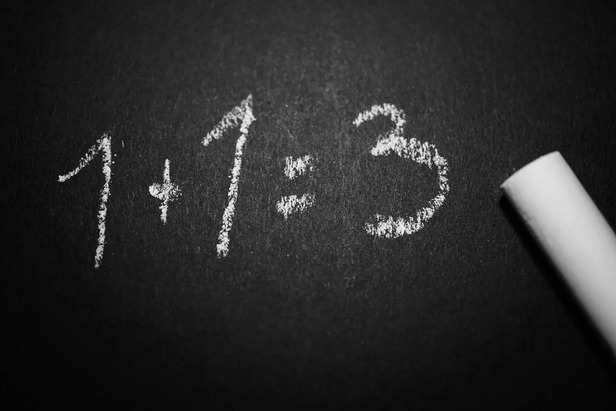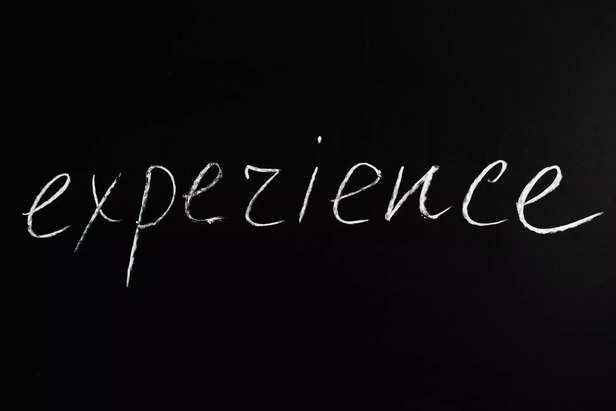The Gita on Why We Don’t Listen Until We Suffer
Riya Kumari | Apr 03, 2025, 23:59 IST
( Image credit : Timeslife )
You ever notice how people give great advice, but we don’t actually follow it until life punches us in the face? Like, your friend tells you not to text your ex, your mom warns you about overspending, and Google straight-up shows you ten articles on why caffeine after 6 PM will ruin your life—but do we listen? No. We charge straight into disaster, fully confident that we are the exception to centuries of human stupidity.
At some point, we’ve all been told exactly what we needed to hear—only to ignore it completely. Maybe a friend warned us about a bad decision, or life whispered a quiet caution, but we didn’t listen. Not because we didn’t understand, but because we didn’t feel it yet. And so, we walked straight into the storm. It’s a pattern as old as time: we resist wisdom until suffering forces us to accept it. And while it feels deeply personal, like our own unique battle with reality, the Bhagavad Gita tells us otherwise. It says this is simply how humans are built. We don't seek the truth when we're comfortable. We seek it when we're brought to our knees. Why do we only listen after we suffer? And is there another way?
1. The Illusion of ‘Knowing’

There’s a difference between knowing something and understanding it. Knowing is intellectual. It’s when we hear an idea, agree with it, and think, Yes, that makes sense. Understanding is different. Understanding happens when life pulls us into the depths of that idea, when it stops being words and starts being our reality. Krishna explains this to Arjuna in the Gita—not with philosophical fluff, but with an unflinching truth: we do not see the world as it is. We see it through our desires, attachments, and fears. And so, even when wisdom is right in front of us, we don’t truly see it until experience forces us to.
We don’t understand impermanence until we lose something we thought was forever. We don’t grasp detachment until the things we cling to break us. We don’t believe we can survive suffering until we do. And that’s when the lesson finally sinks in—not as an idea, but as truth.
2. Why Suffering Becomes the Teacher

Krishna tells Arjuna, “That which is like poison in the beginning but like nectar in the end—that is the path of true wisdom.” Wisdom rarely arrives wrapped in comfort. It arrives in the form of heartbreak, loss, failure—experiences we would never choose, yet somehow transform us. Pain strips away our illusions, our false sense of control. It humbles us, makes us question what we once held certain, and forces us to look at life with new eyes.
We often mistake this as life being cruel. But in reality, it’s life doing what gentle advice never could. We resist change until staying the same is too painful. We ignore truth until the lie falls apart. We refuse to let go until holding on is unbearable. It’s not that suffering is necessary to learn. It’s that, for most of us, it’s the only thing strong enough to break through our resistance.
3. The Other Path—Learning Without Pain

So, are we doomed to only grow through suffering? Not necessarily. The Gita offers another way. Krishna speaks of two paths: Learning through experience (which often means learning through pain). Learning through wisdom—by listening, questioning, and applying truth before suffering forces us to. Most of us take the first path, not because we have to, but because we assume we already know enough. We don’t listen deeply. We hear wisdom, but we don’t live it.
But if we approach life differently—if we take wisdom seriously, question our own assumptions, and open ourselves to learning before life forces the lesson—then suffering is no longer our only teacher. We begin to see truth before we are broken by its absence. This is why the Gita exists. It is wisdom, freely given, waiting to be understood.
4. What This Means for Us

At some point in life, suffering will arrive at our door. Not as punishment, not as cruelty, but as an opportunity—to see what we could not see before. And when it does, we have a choice. We can resist, ask why life is unfair, and refuse to accept the lesson. Or we can listen. We can let it shape us, humble us, teach us what we would not learn any other way.
But maybe, just maybe, we don’t have to wait for suffering at all. Maybe we start listening now. Maybe we start questioning the stories we tell ourselves, the attachments we mistake for truth. Maybe we stop assuming we already know. Because in the end, the Gita doesn’t say we must suffer to learn. It simply says: If we will not learn through wisdom, we will learn through pain. But we will learn. And maybe, knowing that, we start choosing wisdom first.
1. The Illusion of ‘Knowing’

Mistake
( Image credit : Pexels )
There’s a difference between knowing something and understanding it. Knowing is intellectual. It’s when we hear an idea, agree with it, and think, Yes, that makes sense. Understanding is different. Understanding happens when life pulls us into the depths of that idea, when it stops being words and starts being our reality. Krishna explains this to Arjuna in the Gita—not with philosophical fluff, but with an unflinching truth: we do not see the world as it is. We see it through our desires, attachments, and fears. And so, even when wisdom is right in front of us, we don’t truly see it until experience forces us to.
We don’t understand impermanence until we lose something we thought was forever. We don’t grasp detachment until the things we cling to break us. We don’t believe we can survive suffering until we do. And that’s when the lesson finally sinks in—not as an idea, but as truth.
2. Why Suffering Becomes the Teacher

Cry
( Image credit : Pexels )
Krishna tells Arjuna, “That which is like poison in the beginning but like nectar in the end—that is the path of true wisdom.” Wisdom rarely arrives wrapped in comfort. It arrives in the form of heartbreak, loss, failure—experiences we would never choose, yet somehow transform us. Pain strips away our illusions, our false sense of control. It humbles us, makes us question what we once held certain, and forces us to look at life with new eyes.
We often mistake this as life being cruel. But in reality, it’s life doing what gentle advice never could. We resist change until staying the same is too painful. We ignore truth until the lie falls apart. We refuse to let go until holding on is unbearable. It’s not that suffering is necessary to learn. It’s that, for most of us, it’s the only thing strong enough to break through our resistance.
3. The Other Path—Learning Without Pain

Regret
( Image credit : Pexels )
So, are we doomed to only grow through suffering? Not necessarily. The Gita offers another way. Krishna speaks of two paths: Learning through experience (which often means learning through pain). Learning through wisdom—by listening, questioning, and applying truth before suffering forces us to. Most of us take the first path, not because we have to, but because we assume we already know enough. We don’t listen deeply. We hear wisdom, but we don’t live it.
But if we approach life differently—if we take wisdom seriously, question our own assumptions, and open ourselves to learning before life forces the lesson—then suffering is no longer our only teacher. We begin to see truth before we are broken by its absence. This is why the Gita exists. It is wisdom, freely given, waiting to be understood.
4. What This Means for Us

Experience
( Image credit : Pexels )
At some point in life, suffering will arrive at our door. Not as punishment, not as cruelty, but as an opportunity—to see what we could not see before. And when it does, we have a choice. We can resist, ask why life is unfair, and refuse to accept the lesson. Or we can listen. We can let it shape us, humble us, teach us what we would not learn any other way.
But maybe, just maybe, we don’t have to wait for suffering at all. Maybe we start listening now. Maybe we start questioning the stories we tell ourselves, the attachments we mistake for truth. Maybe we stop assuming we already know. Because in the end, the Gita doesn’t say we must suffer to learn. It simply says: If we will not learn through wisdom, we will learn through pain. But we will learn. And maybe, knowing that, we start choosing wisdom first.
